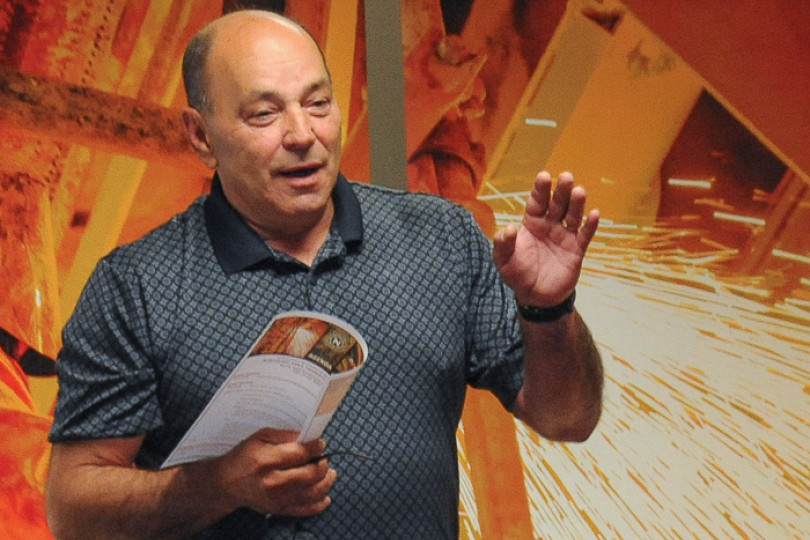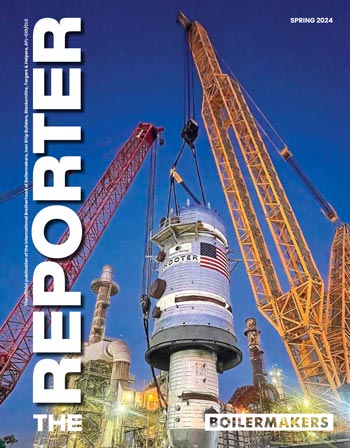Boilermaker workforce among key topics
INDUSTRY PARTNERS ATTENDING the Northeast Area Tripartite Conference in Plymouth, Massachusetts, July 24-25 received updates on various developments and programs critical to the union, contractors and owners.
IVP-NE John Fultz opened the event by addressing the status of the Boilermaker workforce and recent changes in union leadership. Fultz discussed the decline in workforce numbers due to retirements, members accepting positions with contractors and utilities, and coal-fired plant closures. He said staffing changes first announced at the Construction Conference earlier this year are helping to address workforce needs and other industry challenges.
Presenters covered a range of other industry topics:
Jeffrey Hughes, Director - National Training Services, spoke about efforts to upgrade and standardize local lodge training efforts. Mark Wertz, Boilermakers National Apprenticeship Program (BNAP) Administrator, discussed the significance of local training centers being certified by the Electric Power Research Institute (EPRI). Bridget Martin, Bank of Labor Senior Vice President, stressed the importance of the bank to the Labor Movement.
Jay Brophy, MOST Mobilization and Training Representative, reported on MOST programs for project management, field leadership, steward training and the Boilermaker Code. Cecile Conroy, Director-Department of Government Affairs, provided an update on the political and legislative landscape in Washington, D.C. Tony Jacobs, Assistant Director-Legislative Affairs for the Department of Government Affairs, discussed national maintenance contracts. And NE-Area Apprentice Administrator Jason Dupuis addressed the purchase of new welding machines as well as journeyman/apprentice ratios.
IVP Fultz closed out the conference with a report on the National Funds. He said although man-hours have been down, investment returns have been positive, and the National Health & Welfare Fund is projected to have no increase in premiums for the eighth year in a row.








